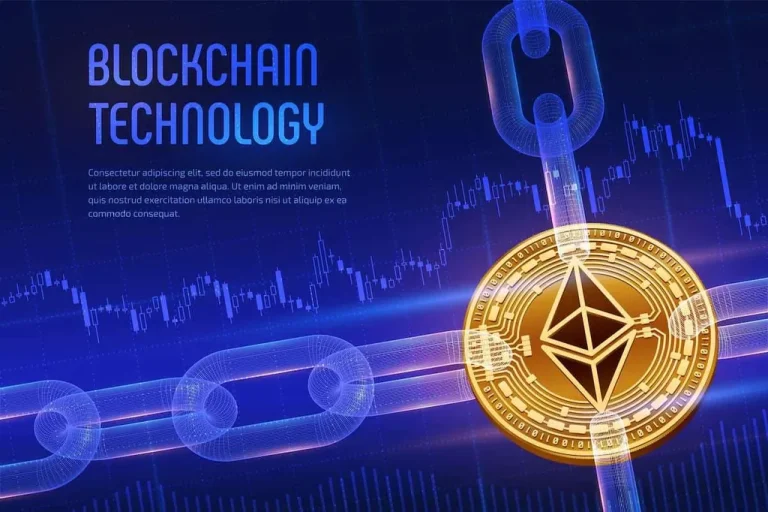Implications of Decentralized Finance for Competition, Antitrust Policy and Economic Growth
Content
This is the promise of DeFi, where financial services are built on blockchain technology, enabling transparency, security, and inclusivity like never before. An extensive network that combines Cryptocurrency wallet DeFi protocols and financial instruments has been established by the DeFi ecosystem, ranging from portals for lending and borrowing to stablecoins and tokenized BTC. DeFi developers have opened up a world of fresh opportunities for asset-decentralized finance and risk management by using irreversible smart contracts on Ethereum.
Traditional Finance vs Decentralized Finance
Furthermore, because permission-less DeFi solutions are not susceptible to single points of failure, they are frequently safer than their centralized equivalents. They are therefore perfect for conducting financial transactions and holding value. Thus, one of the main draws for anyone interested in entering the decentralized what is open finance in crypto financial space is the permissionless aspect of DeFi. Although there are a number of possible advantages to decentralized finance (DeFi), it’s crucial to be aware of the hazards before committing to anything. DeFi and open finance applications are vulnerable to security risks, such as smart contract vulnerabilities and wallet hacks, which can result in financial losses.
How Webevis Technologies is Shaping the Future of Fintech
Trusted Execution Environments (TEEs) are secure areas within a main processor that provide a protected spa… Parties involved in open https://www.xcritical.com/ finance are using the following strategies to tackle these privacy and security concerns.

Augur: Market prediction platform
DeFi also faces specific barriers to entry such as high initial investment costs. DeFi provides an alternative to traditional financial services, which necessitate the costs of intermediaries (Roose 2022). Open finance enables the expansion of financial services to remote and marginalized communities. Imagine a financial ecosystem where transactions are conducted peer-to-peer, without intermediaries, and where anyone, anywhere in the world, can participate.
Strengthening Governance and Transparency
By using DeFi, users can lend or borrow Ethereum-based assets, earn interest on their crypto holdings, trade digital assets without having to use a centralized exchange, and much more. Decentralized finance or DeFi is a monetary system that is built on public blockchains. The components of open finance consist of protocols, digital assets, dApps (decentralized applications), and smart contracts, which are built on blockchain. Open finance enables non-banks to provide banking services through BaaS and embedded finance, widening access to financial services, opening up new routes to market and providing new sources of revenue for institutions.
A year ago, the UK’s Financial Conduct Authority published a Call of Input with a conclusion stating that open finance could be beneficial for firms in the constantly changing environment due to COVID-19. As financial data basically includes information about mortgages, insurance, savings, pensions, open finance aims to improve the individuals’ financial well-being in the era of market innovation and increased competition levels. We are also seeing a shift towards decentralized governance and decision-making. Today, despite the focus on the word ‘decentralized’ in DeFi, the projects have master keys for DeFi platform development solution providers to shut down dapps for the sake of easy upgrades or to safeguard instances of buggy codes. The DeFi community, however, is looking for ways to enable stakeholders to vote on decisions, introducing a much wider range of DeFi use cases. Crypto is the latest digital offering of an industry that has been around since the beginning of time.
Take, for example, a phone call; many people prefer to speak directly with a company’s representative, rather than work through a computerized voice menu. People are generally change-resistant, and DeFi platforms will need to build trust in order for consumers to accept their services. This entry barrier puts DeFi at a disadvantage compared to traditional financial services, which typically offer physical locations and human interaction. Yet, despite these challenges, the opportunities presented by DeFi are vast and transformative. By removing intermediaries, DeFi has the potential to democratize finance, providing financial services to the unbanked and underbanked populations worldwide. It fosters financial inclusion, empowers individuals to take control of their wealth, and drives innovation in the financial sector.
However, despite such progress financial process remain deeply inefficient at their core, especially in the context of cross-border settlements. In short, DAOs may foster competition and enable businesses to operate more efficiently. They also have an appealing internal governance structure that utilizes electronic voting.
In doing so, RSK realizes the need for ease-of-access, and thus, strives towards developing user-friendly solutions and services. Therefore, as a whole, to effectively and safely use existing DeFi offerings, the user has to pass through a substantially steep learning curve. As such, this is highly time-consuming, but more importantly, it is not possible for all people to study and learn the technicalities of the technology. Moreover, the present state of the DeFi ecosystem is quite fragmented, meaning that there is little or no standardized body of knowledge from which users can learn. In other words, the leaning process becomes even more difficult since one has to work their way through multiple, often-contesting accounts and literature. Furthermore, the fact that DeFi ecosystems are mostly permissionless also has a flip side.
However, even then, such entities do not control the system’s overall functioning and cannot bend the rules at will. In other words, DeFi systems can have varying degrees of decentralization, but are ultimately and majorly user-controlled. The traditional finance (TradFi) industry is increasingly exploring the potential of alternative financial management, transaction and storage methods. Key figures are now beginning to recognize the critical role decentralized finance (DeFi) plays in reshaping the sector.
It enables transparency, speed, and interoperability, delivering exceptional efficiency and transforming the way financial systems operate. Offering consumers an alternative to the sometimes opaque and unreachable existing financial institutions is the goal of bringing about decentralized finance. DeFi aims to create a more inclusive financial system that benefits all users by improving the accessibility and usability of financial services. Open finance is the practice of using open APIs (application programming interfaces) to give third-party developers access to the data they need to build applications and services in the financial industry. While open banking focuses specifically on banking data, open finance includes a broader range of financial services such as insurance, investments, and pensions. This facilitates the creation of more varied products and services that let consumers manage their financial assets, liabilities, and insurance products in one platform, regardless of where these assets are held.

These applications, running on blockchain networks, utilize smart contracts to automate financial processes in a permissionless and trustless manner. The aim of introducing decentralized finance is to provide users with an alternative to traditional financial systems that are often opaque and inaccessible. By making financial services more accessible and user-friendly, it is hoped that DeFi will lead to a more inclusive financial system that works for everyone. In general, DeFi’s popularity is backed by substantial reasons which we shall discuss in the course of this article.
- This is how DeFi applications can significantly reduce transaction costs and fees.
- In other words, DeFi systems can have varying degrees of decentralization, but are ultimately and majorly user-controlled.
- In effect, these are blockchain-based decentralized counterparts of traditional financial institutions and can function as banks, lending service providers, and so on.
- DeFi offers a range of financial services, including lending, borrowing, trading, and investment.
- As open finance grows, it will unlock new possibilities for customers and companies alike, fostering a more connected and empowered society.
It facilitates the seamless exchange of data across financial institutions and third-party providers, underpinned by secure APIs (Application Programming Interfaces). APIs ensure data privacy and protection, while fostering a more competitive and collaborative environment among service providers. We help the financial services industry to unlock the power of open finance, enabling accessible and affordable financial services for all. We’re driving change by connecting finance to people who need it most, providing the data to enable sustainable decisions, and pioneering new financial ecosystems. Open finance allows consumers to actively engage with their financial data and become more financially literate.
They can impose restrictions on what types of transactions users can make, and they can also block access to accounts if they suspect fraudulent activity. While decentralized finance (DeFi) has the potential to provide several benefits, it is also important to understand the risks involved before getting started. Open Finance’s remarkable ascent is rooted in a complex narrative that intertwines decentralized finance (DeFi), the evolution of traditional financial systems, and a growing synergy with innovative technologies. To adapt to this changing landscape, many financial institutions are now actively committing resources to their open banking initiatives.
Our services streamline operations and drive innovation, optimising efficiency in a competitive financial environment. Developers may freely build upon established protocols, alter user interfaces, and include third-party apps with decentralized accounts. This kind of versatility is why DeFi conventions are sometimes referred to as “Money Legos.” It is possible to create new decentralized money apps by combining several DeFi products. DeFi has gained significant traction in recent years, with the total value locked in DeFi protocols exceeding $10 billion. The DeFi ecosystem includes lending protocols, decentralized exchanges (DEXs), stablecoins, and non-fungible tokens (NFTs). I have worked in financial institutions, large and small, I can attest that the financial products offered by these organizations are designed to benefit them and not you, the consumer of these loan and savings products.


